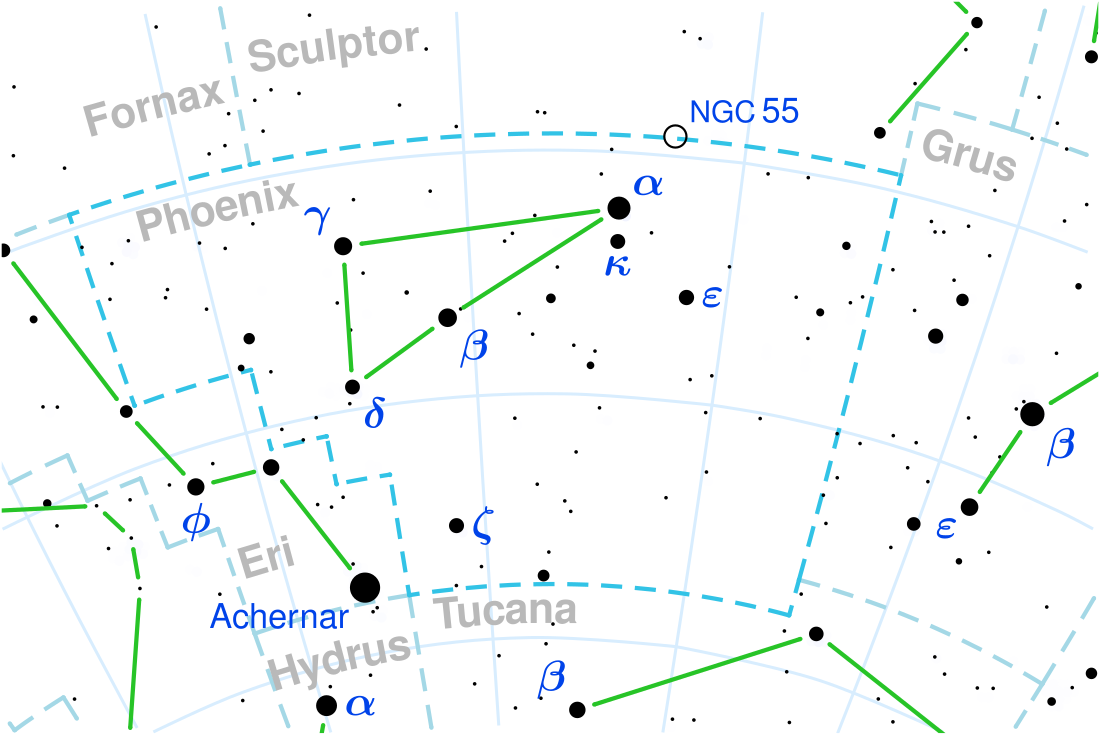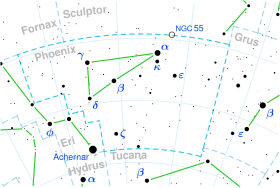Top Qs
Timeline
Chat
Perspective
Iota Phoenicis
Star in the constellation Phoenix From Wikipedia, the free encyclopedia
Remove ads
ι Phoenicis, Latinized as Iota Phoenicis, is a binary star[9] system in the southern constellation of Phoenix, near the constellation border with Grus. It is visible to the naked eye as a faint, white-hued star with an apparent visual magnitude that fluctuates around 4.71.[2] This system lies approximately 254 light years from the Sun based on parallax, and it is drifting further away with a radial velocity of +19.4 km/s.[4]

The primary component is an Ap star on the main sequence with a stellar classification of A2VpSrCrEu,[3] where the suffix notation indicates abnormal abundances of strontium, chromium, and europium in the stellar atmosphere. It is an Alpha2 Canum Venaticorum variable; its apparent magnitude varies from 4.70 down to 4.75 with a period of 12.5 days.[3] A rotationally-modulated magnetic field has been measured, varying from −72±9 G to 57±9 G. It has an estimated rotation period of 5.98±0.06 d, although this is in need of further confirmation.[11]
The proper motion companion[12] is a magnitude 12.8 star at an angular separation of 6.7″.[9]
Remove ads
References
Wikiwand - on
Seamless Wikipedia browsing. On steroids.
Remove ads

